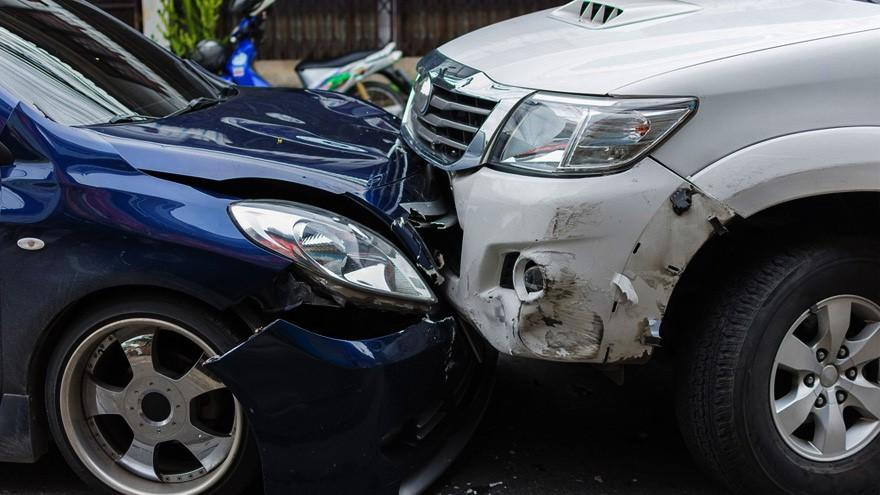Car recalls are more common than many drivers realize. Each year, millions of vehicles are recalled due to safety concerns — from faulty airbags and braking systems to software glitches that affect driving performance. Whether you’re buying a used car or currently own one, knowing how to check for recalls is essential for your safety and peace of mind.
In this comprehensive guide, we’ll explain what car recalls are, why they happen, and step-by-step how to check if your car has been recalled, including tools and resources for drivers in the US, UK, and Canada.
What Is a Car Recall?
A car recall happens when a vehicle manufacturer or a government safety agency identifies a safety-related defect that may pose a risk to drivers, passengers, or other road users.
Recalls are typically issued to repair, replace, or update the faulty part — at no cost to the owner.
Common Reasons for Car Recalls
- Defective airbags (such as the well-known Takata airbag recall)
- Brake system malfunctions
- Engine or fuel system defects
- Electrical issues causing stalling or fire risk
- Seat belt failures
- Software glitches in modern vehicles
- Suspension or steering problems
Why Checking for Recalls Matters
Ignoring a recall might seem harmless, but it can have serious consequences. A small defect can lead to a breakdown, crash, or even injury. Beyond personal safety, unresolved recalls may affect your car’s resale value and insurance coverage.
Here are key reasons to stay updated:
- Safety first: Recalls are issued for a reason — to fix safety-related issues.
- Free repairs: Manufacturers must fix recalled parts at no cost.
- Better resale value: Cars with completed recall repairs are more attractive to buyers.
- Legal and insurance protection: Some insurers or governments may hold owners accountable for unresolved safety recalls.
How to Check If Your Car Has Been Recalled
Step 1: Find Your VIN (Vehicle Identification Number)
The VIN is a 17-character code unique to your vehicle. You can find it in several places:
- On your vehicle registration or insurance documents
- On the dashboard, near the windshield (driver’s side)
- Inside the driver-side door frame
- On official recall notices or the manufacturer’s website
Step 2: Use Official Recall Lookup Tools
Depending on your country, there are reliable government and manufacturer tools that allow you to search for recalls by VIN.
For the United States
Visit the NHTSA Recall Lookup Tool (National Highway Traffic Safety Administration).
- Enter your VIN and click “Search.”
- If your vehicle has an active recall, it will show detailed information including the defect, risk, and fix.
- The system updates every 24–48 hours.
For the United Kingdom
Go to the DVSA Vehicle Recall Checker (Driver and Vehicle Standards Agency).
- You can search by vehicle registration number (license plate).
- The site lists all recalls issued for that car, including completion status.
For Canada
Visit Transport Canada’s Recall Database.
- Search by VIN, make, or model.
- You’ll get a summary of the recall, the reason, and instructions for repair.
What to Do If Your Car Has Been Recalled
If your search reveals that your car is part of a recall, don’t panic — the process is straightforward.
Step 1: Contact the Manufacturer or Dealer
Call your authorized dealership or the manufacturer’s customer service number. Provide your VIN, and they’ll verify if your car needs repairs.
Step 2: Schedule a Free Repair
All recall repairs related to safety are free of charge, even if your warranty has expired. Dealers will order replacement parts (if needed) and schedule an appointment for you.
Step 3: Keep Repair Documentation
Once the recall service is complete, you’ll receive a repair confirmation receipt. Keep it in your records — especially if you plan to sell your car later.
Step 4: Follow Up on Delayed Parts
In some cases, replacement parts may not be immediately available. Stay in touch with your dealer or manufacturer for updates.
How to Stay Updated on Future Recalls
Recalls can happen months or even years after you buy a car. Staying informed ensures you never miss a critical update.
Tips to Stay Informed
- Register your vehicle with the manufacturer’s owner portal.
- Sign up for recall alerts on the NHTSA, DVSA, or Transport Canada websites.
- Check recalls periodically, especially if you buy a used car.
- Download mobile apps like Carfax, AutoCheck, or myCarfax to track recall alerts automatically.
What About Used Cars?
When purchasing a used vehicle, you may inherit unresolved recalls from the previous owner.
Before Buying a Used Car:
- Always run a VIN check to ensure all recalls have been fixed.
- Ask for a recall completion report from the seller or dealer.
- Use tools like Carfax, AutoTrader, or Edmunds to view recall history.
Pro tip: Avoid cars with long-pending recalls on critical systems (airbags, brakes, or steering).
Examples of Major Car Recalls
To give you an idea, here are a few notable recalls recently issued:
- Toyota (2025): Over 100,000 vehicles recalled for faulty brake sensors.
- Ford (2024–2025): Recall on F-150 trucks due to potential steering column failures.
- Honda (2024): Airbag control module defect affecting Civic and CR-V models.
- Tesla (2025): Software recall to fix Autopilot lane-changing system.
- Hyundai/Kia (2024): Engine fire risks due to oil leaks in older models.
These recalls highlight how both traditional and electric vehicle manufacturers are constantly monitoring safety — and why owners must stay alert.
FAQs About Car Recalls
Do recalls expire?
No, safety recalls do not expire. However, it’s best to act quickly, as manufacturers may phase out replacement parts for older vehicles.
Can I drive my car if it’s been recalled?
It depends on the recall. If it’s a serious safety risk (e.g., fire or brake failure), stop driving immediately and contact your dealer for towing and repair instructions.
What if I never received a recall notice?
Even if you didn’t get a letter or email, you are still responsible for checking your car’s recall status periodically.
Can independent mechanics fix recall issues?
No. Only authorized dealers can perform official recall repairs free of charge.
Final Thoughts
Car recalls are a normal part of owning a vehicle, but being proactive is key to staying safe. By regularly checking your VIN on official websites and acting promptly on recall notices, you protect yourself, your passengers, and other drivers on the road.
Remember — recall repairs are always free, and most only take a few hours. So don’t ignore that letter or dashboard alert. Stay informed, stay safe, and keep your vehicle in top shape.






